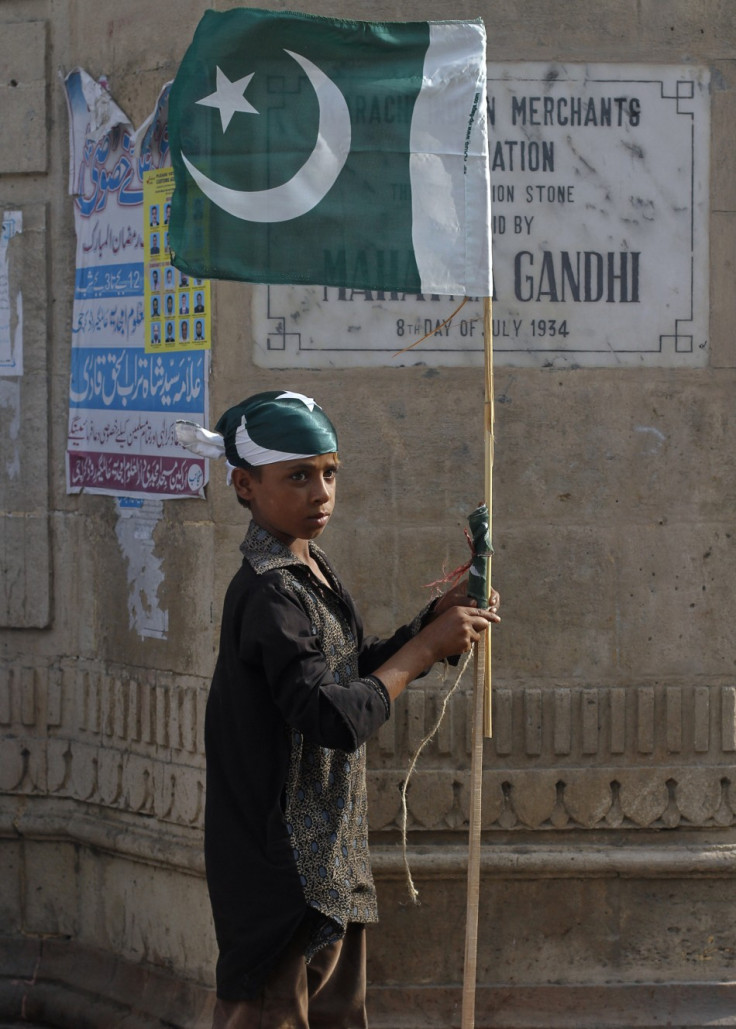The Pakistani Haqqani: A New Al-Qaeda or a Reason for the U.S. to Attack Pakistan?

Despite accusations by the U.S., the Afghan Taliban Haqqani terrorist network has denied being supported by Pakistan, according to CCN, raising questions over American accusations towards the Pakistani government's involvement with Pakistani terrorist groups.
"Our bases are not in Pakistan nor do we reside outside of our country in insecure conditions," the email sent to Afghan and Pakistani journalists said. "All military and civilian activities in (Afghanistan) are our own initiatives and our own actions, "CNN said the group wrote in an e-mail it obtained.
Jalaluddin Haqqani, the founder of the militant group, "only receives orders from their leader, Mullah Omar," the email also reportedly said.
Defending the country's authorities Pakistani Foreign Minister Hina Rabbani Khar also said during an address to the U.N. General Assembly this week that "Very few countries have been ravaged by the monster of terrorism as brutally as Pakistan," "It is Pakistan's firm determination not to allow any space on its territory for militants and terrorists."
The response from both the terrorist group and the Pakistani authorities come a few days after Chairman of the U.S. Joint Chiefs of Staff Adm. Mike Mullen said that the Haqqani network, responsible for a string of high profile attacks in Kabul, Afghanistan acted "as a veritable arm of Pakistan's intelligence."
The recurrent accusations against the Pakistani authority coming from Washington officials have now taken such a direct and incriminatory nature that defender of Pakistan call for the U.S. to stop 'bullying' Islamabad.
While the two countries vowed to cooperate and fight off terrorism since their alliance in the war against terror, the U.S. became highly suspicious of Pakistan after it discovered Al-Qaeda leader Bin Laden had been hiding in Abbottabad.
The secret U.S. Navy SEAL raid which led to the killing of Bin Laden and had been organised by Washington without the knowledge of the Pakistani authorities, led to Islamabad warning it will not tolerate a further transgression of its sovereignty from Washington.
Since then the relationship between the two states have been volatile, with each camp accusing the other but with Mullen now openly alleging Pakistani authorities support terrorism via the Haqqani network, relations are set to get even more tensed.
Militants from the Haqqani network had their origins in the Mujahedeen movement which fought the Soviet in Afghanistan with the support of the U.S and Saudi Arabia.
However, intelligence officials still believe the ISI or Pakistan intelligence use the Haqqanis as a tool to counter Indian influence in Afghanistan and affirm the Haqqanis rely on Pakistani territory to organize, resupply and raise funds.
With an estimation of up to 10,000 to 15,000 fighters and tight links to both the Afghan and Pakistan Taliban the Haqqanis have become in recent years an important regional player and have been particularly active in recent months.
According to Western intelligence officials the Haqqanis were involved in the attack on an Intercontinental Hotel in Kabul in June and more recently in the assassination of the Chairman of Afghanistan's High Peace Council and former Afghan President, Burhanuddin Rabbani.
The strong U.S. reaction has however angered the Pakistani public and other observers who say that just like with Al-Qaeda, which not many people had heard of before the 9/11 attacks, the Haqqani are now being pushed forward as the new common enemy and will be used as a reason advanced by the U.S. to attack Pakistan in the next future.
When Osama Bin Laden died, many were shocked the former leader of Al-Qaeda had been left almost unarmed and with no trained security team, insisting it showed the decline of the terrorist organisation.
With Bin Laden out of the picture and Al-Qaeda's influence experiencing a sharp decline in the last few years, the U.S. need another scary enemy to continue its war on terror, some say.
While the Haqqani network is incontestably an active terrorist organisation extremely active in Afghanistan, the country has a very poor security level, due to the Afghan's forces lack of control over the territory, making it easier for terrorist group to stage attacks.
Haqqani is mainly a regional actor that oscillates between Pakistan and Afghanistan and should thus not be used by the U.S. as an excuse to launch a military attack on Pakistan.
While many in the south east region still fear U.S. invasion following the missions in Iraq and Afghanistan, the situation in both countries are are from being stable despite years of U.S. and NATO involvement, training and efforts so a military attack on Pakistan by the U.S. seems both unlikely and risky as such an action might be met by strong protests from both Russia and China.
© Copyright IBTimes 2025. All rights reserved.





















